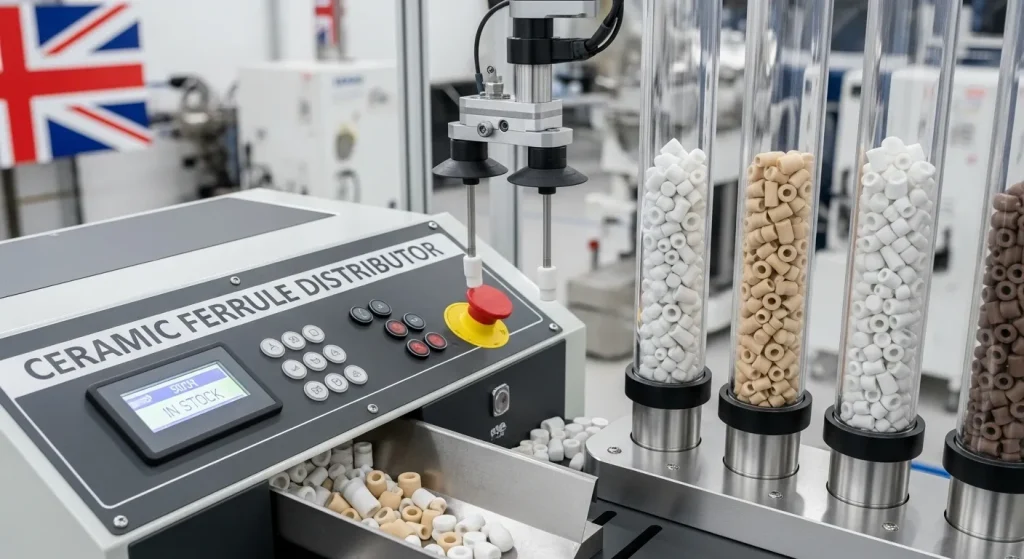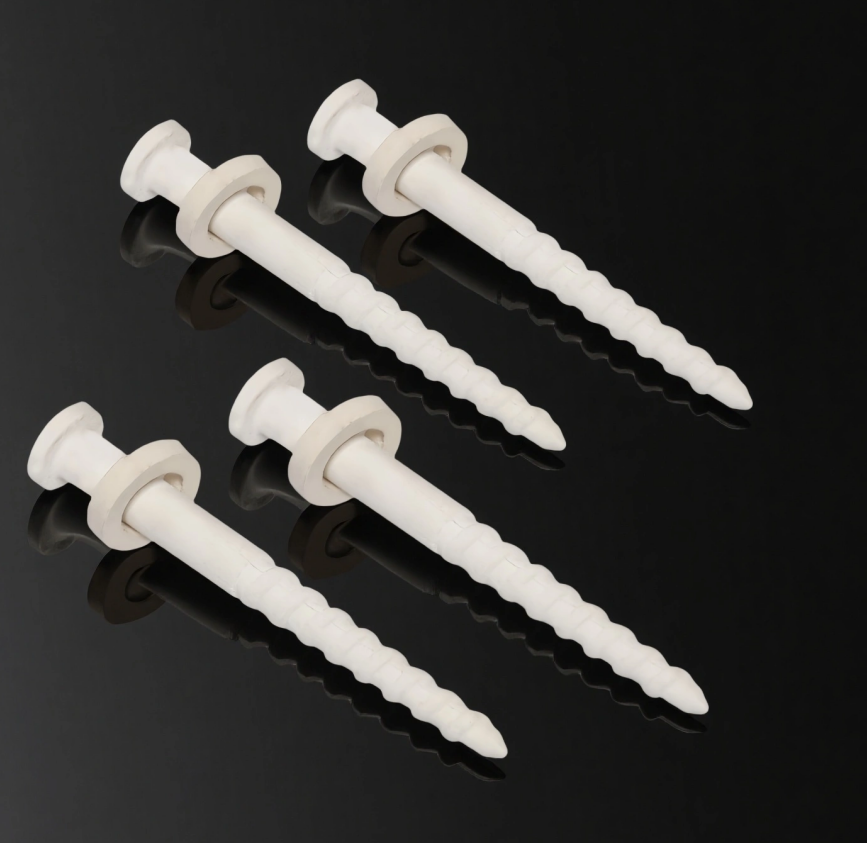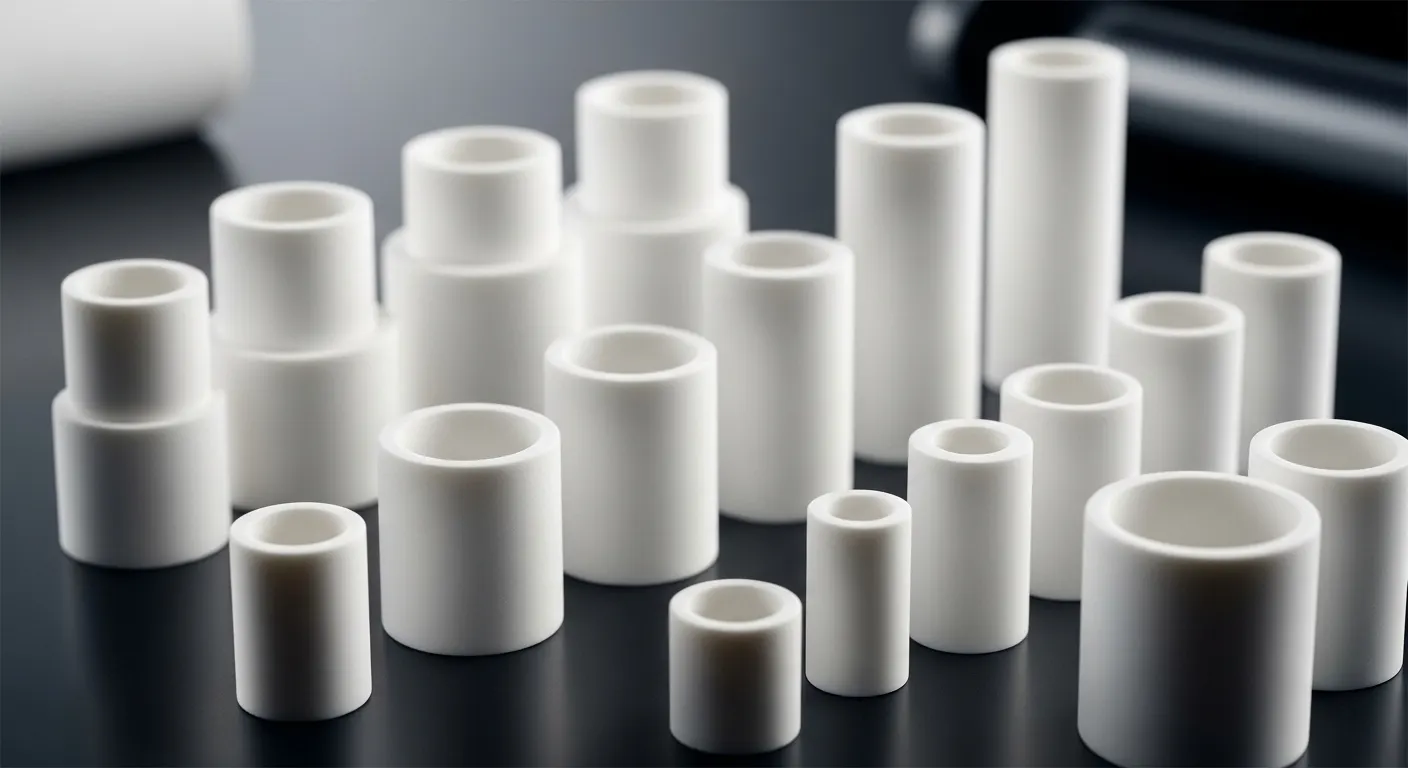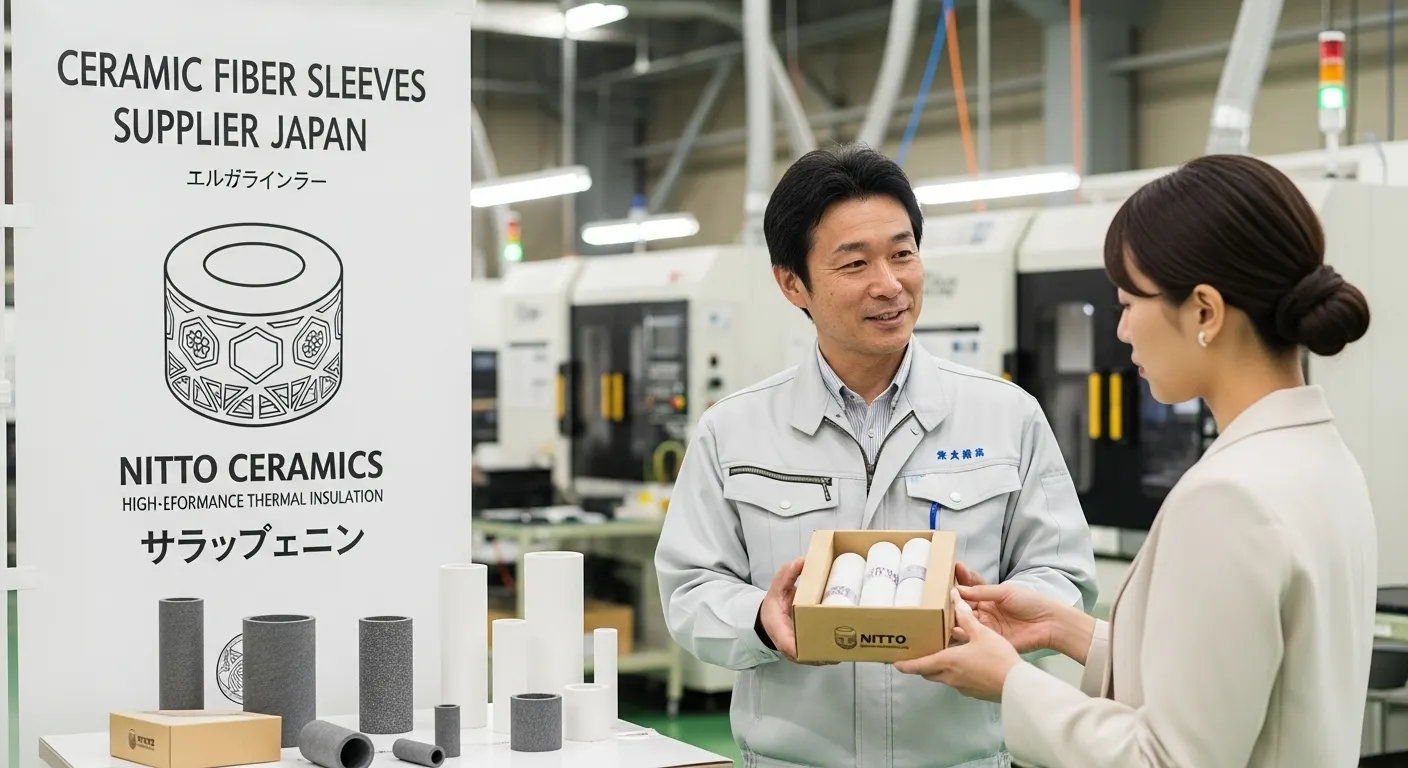Ceramic Ferrule Distributor UK
A premier ceramic ferrule distributor UK is a vital partner for the nation's technology infrastructure. These distributors supply the single most important component in fiber optic connectivity. The ceramic ferrule is a high-precision pin. It is the heart of every fiber optic connector. The performance of data centers, 5G networks, and medical devices rests on its microscopic precision. A top-tier distributor provides more than just a component. They deliver a fully-vetted, compliant, and reliable supply of this critical part.

The role of a distributor in this market is crucial. They bridge the gap between global, high-volume manufacturing and local, high-specification needs. They provide technical expertise. They manage logistics. Most importantly, they act as a quality firewall. They ensure that every ferrule sold meets the stringent standards required for high-speed, reliable data transmission. This article explores the technology, the market, and the critical role of a quality distributor.
What Are Ceramic Ferrules?
A ceramic ferrule is a precision-engineered alignment component. It is a small, rigid cylinder, typically white. It has a microscopic, hollow channel, or "bore," through its exact center. The sole purpose of a ferrule is to hold a single, bare optical fiber. It protects the delicate glass fiber. It also provides a stable, polished end-face.
The Core Function: Sub-Micron Alignment
The ferrule's main job is alignment. A single-mode fiber optic core is incredibly small. It is typically only 9 microns (µm) in diameter. A human hair is about 70 microns. The ferrule must align two 9-micron cores. This alignment must be nearly perfect. Any error, or "misalignment," will cause the light signal to fail. This signal loss is called insertion loss. A high-quality ferrule minimizes this error.
The Component That Makes Fiber Optics Possible
The ferrule is the key enabling technology of a fiber optic connector. It allows for a stable, low-loss connection. It is the component that is polished. It is the component that makes physical contact. Without the ceramic ferrule, the modern fiber optic network would not exist. A comprehensive ceramic ferrules guide can provide a deeper overview of this technology.
The Material: Yttria-Stabilized Zirconia (Y-TZP)
The component is named for its material, and for good reason. Ceramic ferrules for fiber optic applications are made from Yttria-Stabilized Zirconia (Y-TZP). This is not a household ceramic. It is an advanced technical ceramic. It is the only material that offers the perfect balance of properties.
Why Zirconia is the Unmatched Standard
Zirconia is chosen for three key reasons.
- Hardness: It is exceptionally hard. It resists scratches, wear, and deformation.
- Toughness: It is not brittle. It can absorb stress and impact.
- Thermal Stability: It expands and contracts at a rate very similar to glass.
Unmatched Hardness and Durability
Zirconia has a hardness of around 8.5 on the Mohs scale. This is much harder than steel. This hardness is vital for the ferrule's end-face. It means the polished tip will not scratch or deform. A connector can be mated and un-mated thousands of times. The ferrule's surface will not wear down. This ensures a long, reliable life.
High Fracture Toughness
This is zirconia's most unique trait. Most ceramics are brittle; they shatter. Y-TZP, thanks to the yttria, is "tough." It can absorb stress and impact. This is due to a process called "transformation toughening." This toughness is essential. The ferrule is a small, thin-walled part. It must withstand the constant force of the connector's spring.
Thermal Stability: A Perfect Match for Glass
This is the most important property for performance. Zirconia has a coefficient of thermal expansion very similar to that of the glass optical fiber. This means that as the temperature changes, the ferrule and the fiber expand and contract at similar rates. This is vital. It prevents the fiber from breaking. It also stops "pistoning," which would create a gap and kill the signal.
Material Purity
A key part of the distributor's job is to ensure material purity. A low-cost ferrule may use zirconia powder mixed with fillers. These fillers compromise all the key properties. A top-tier distributor guarantees their ferrules are 100% Y-TZP.
The Role of a Ceramic Ferrule Distributor UK
A ceramic ferrule distributor UK is not just a reseller. They are a critical supply chain and quality partner. They add significant value for assemblers and network builders.
More Than a Reseller
A reseller just moves boxes. A distributor provides solutions. They are a technical partner. They help customers select the right grade of ferrule. They help troubleshoot polishing and testing issues.
Local Stockholding and Logistics
This is the primary logistical benefit. A premier distributor holds a large, local stock of ferrules. This includes 2.5 mm, 1.25 mm, PC, and APC types. This local inventory is a major advantage.
- Fast Delivery: Customers get parts in 24 hours, not 12 weeks from an overseas factory.
- No Import Hassles: The distributor handles all importation, customs, and duties.
- Just-in-Time (JIT) Supply: Assemblers can pull stock as needed. This reduces their own inventory costs.
Quality Assurance and Vetting
This is the distributor's most important role. The global market has many manufacturers. The quality varies widely. A premier ceramic ferrule distributor UK acts as the quality firewall.
- Vetting Suppliers: They audit and vet global manufacturers. They only partner with those who meet high standards.
- Batch Testing: They do not just trust the factory's report. They take samples from incoming batches. They test these samples in their own lab.
- Rejecting Bad Parts: They identify and reject any components that do not meet specification. This protects the customer.
Technical Support and Local Expertise
A local distributor understands the market's needs. Their technical team is in the same time zone. They speak the same language. They can provide immediate, expert support. This is invaluable when a production line is down.
Supply Chain Management
The distributor manages the entire supply chain. They forecast demand. They manage currency risk. They handle international freight. The customer gets a simple, reliable solution.
A ceramic ferrule distributor UK must be an expert in compliance. This is a non-negotiable part of their business.
Compliance with RoHS and REACH
All components sold in the market must comply with strict regulations.
- RoHS (Restriction of Hazardous Substances): This directive restricts the use of lead, mercury, and other materials. A distributor must provide ferrules that are 100% RoHS compliant.
- REACH (Registration, Evaluation, Authorisation and Restriction of Chemicals): This regulation governs all chemicals. A distributor must provide a Declaration of Conformity.
The Role in UKCA/CE Marking
The ferrule is a component. The final product, like a patch cord, must have a UKCA (or CE) mark. This mark is the assembler's declaration that the product is safe and compliant. This is only possible if all components are compliant. A distributor provides the compliant ferrules. They also provide the traceability and documentation to prove it.
Adherence to British Standards (BSI)
A professional distributor is familiar with British Standards (BSI). They work to ensure their products help customers meet these standards. This demonstrates a commitment to quality.
Key Ferrule Specifications
A ceramic ferrule distributor UK must stock a wide range of parts. The quality of a ferrule is defined by its precise, sub-micron specifications.
Outer Diameter: 2.5 mm vs 1.25 mm
There are two dominant ferrule standards.
- 2.5 mm Ferrules: This is the older, larger standard. It is the-pin used in SC, ST, and FC connectors. These are known for their robust, durable nature. They are still used in telecom and industrial applications.
- 1.25 mm Ferrules: This is the smaller, modern standard. It is used in LC and MU connectors. Its small size allows for very high-density connections. This makes it the standard for data centers and 5G.
Inner Diameter (Bore) Tolerances
The inner diameter (ID) must match the fiber. A standard 125 µm fiber uses a ferrule with a 126 µm bore. This provides a 1 µm clearance. This tolerance is critical.
- Standard ID: 126 µm (±1.0 µm)
- Precision ID: 126 µm (±0.5 µm)
A tighter tolerance improves alignment. A good distributor stocks these precision grades.
Concentricity and Eccentricity
This is the most critical specification for performance. Concentricity is the measure of how centered the ID (the hole) is relative to the OD (the ferrule body). Any offset is called eccentricity. This eccentricity directly causes the fiber cores to be misaligned.
- Eccentricity = Insertion Loss: A 1 µm offset can cause 0.5 dB of loss. This is unacceptable.
Understanding Ferrule Grades
Ferrules are "graded" based on their concentricity.
- Standard Grade: May have an eccentricity of 1.0 µm or more.
- Premium Grade: Will have an eccentricity of < 0.7 µm.
- Ultra Grade: Will have an eccentricity of < 0.5 µm.
A premier ceramic ferrule distributor UK will only stock premium and ultra grades. They can provide the test data to prove it.
End-Face Geometry: PC vs. APC
The ferrule tip is polished to a specific shape.
- PC (Physical Contact): A slightly domed end. This ensures the fiber cores touch. This is usually a blue connector.
- APC (Angled Physical Contact): The end is polished at an 8-degree angle. This is the green connector. The angle causes any reflected light to bounce out of the fiber. This prevents back reflection. It is essential for video, 5G, and high-speed data.
A distributor must stock both standard PC ferrules and pre-angled APC ferrules.
The Ferrule Manufacturing Process: A Distributor's View
A distributor does not make the ferrule. But they must be an expert in the process. This is how they vet their suppliers. The process is a marvel of ceramic engineering.
Ceramic Injection Molding (CIM)
The process begins with the Y-TZP powder and a binder. This paste is injected into a mold. This forms the "green part."
Debinding and Sintering
The green part is heated slowly. The binder is burned off. The part is then heated to over 1,400°C. It shrinks and becomes hard. This sintering step is critical for dimensional stability.
Precision Grinding and Lapping
The sintered part is finished. Diamond tools are used. The OD is ground to its exact 1.25 mm or 2.5 mm size. The ID is lapped. A tiny wire coated in diamond slurry is used to finish the hole.
Final Inspection
A good manufacturer performs 100% inspection. They check every single ferrule. A distributor must verify this. They must ensure their manufacturer is not just "batch sampling."
Quality Assurance: The Distributor's Responsibility
A top-tier ceramic ferrule distributor UK takes quality assurance very seriously.
- Verifying ISO 9001: They ensure their manufacturing partner is ISO 9001 certified.
- In-House Metrology: A premier distributor has its own test lab. They use interferometers to check end-face geometry. They use air gauges to verify the inner diameter.
- Material Traceability: They must provide full lot traceability. This links a batch of ferrules back to the raw material powder. This is essential for accountability.
Applications Driving Demand in the UK
The demand for high-quality ferrules is strong.
- Data Centers: This is the largest driver. Data centers use millions of LC connectors. They require premium, low-loss ferrules.
- Telecommunications: The rollout of FTTH and 5G requires vast numbers of SC and LC connectors. APC ferrules are critical for 5G.
- Medical Technology: Medical devices, like endoscopes, use fiber optics. They require custom, high-reliability ferrules.
- Research and Development: The UK has a strong photonics research sector. These labs need a local supplier for standard and custom parts.
The Global Supply Chain Context
A ceramic ferrule distributor UK operates within a global market.
- They source from the world's best manufacturers.
- They benchmark their quality against other high-spec markets, like those for ceramic ferrules USA.
- They are part of the wider ceramic ferrules Europe supply network.
- They monitor trends in high-growth markets, like ceramic ferrules Indonesia.
This global perspective allows them to provide the best products and a stable supply.
How to Choose a Ceramic Ferrule Distributor UK
When selecting a partner, a buyer should use a checklist.
- ISO 9001 Certification: Is the distributor ISO 9001 certified?
- RoHS and REACH Compliance: Can they provide a Declaration of Conformity?
- Local Stockholding: Do they have a significant local inventory?
- Technical Support: Do they have an engineering team?
- Test Data: Can they provide a test report for the ferrules?
- Traceability: Can they offer full lot traceability?
Conclusion
A ceramic ferrule distributor UK is a strategic partner. They are not just a supplier. They are an extension of their customer's quality team. They provide a secure, compliant, and reliable supply of the most critical component in fiber optics. By managing local stock, providing technical support, and ensuring 100% compliance, they enable the UK's technology industry to thrive.
In This Article
- 1 What Are Ceramic Ferrules?
- 2 The Material: Yttria-Stabilized Zirconia (Y-TZP)
- 3 The Role of a Ceramic Ferrule Distributor UK
- 4 Navigating UK Regulatory Standards
- 5 Key Ferrule Specifications
- 6 The Ferrule Manufacturing Process: A Distributor's View
- 7 Quality Assurance: The Distributor's Responsibility
- 8 Applications Driving Demand in the UK
- 9 The Global Supply Chain Context
- 10 How to Choose a Ceramic Ferrule Distributor UK
- 11 Conclusion
 English
English 中文
中文





